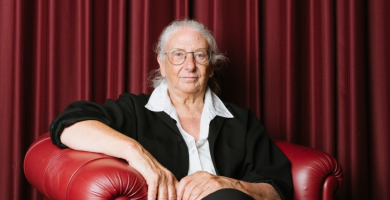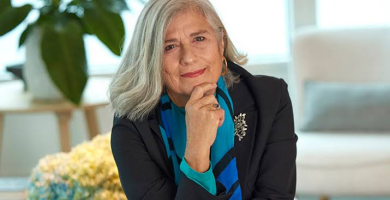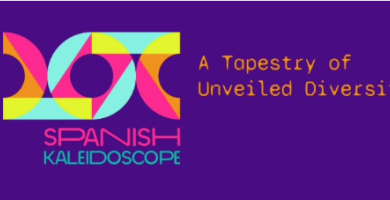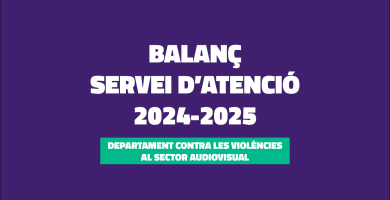
NÚRIA VIDAL: "The review must be subjective and those who read you must know that they can trust what you write even if they don’t agree with it."
This month we interviewed the film critic Núria Vidal who has been in the profession since 1984. She has worked with La Vanguardia, Fotogramas, Cinema 3 and Time Out.

She has taught Film Review at ESCAC and she has also written about 30 books on film. Núria Vidal was the Spanish delegate at the Berlin Film Festival and was part of the Steering Committee of the San Sebastián and Sitges festivals. An honorary member of the Catalan Film Academy, she is also the co-founder and coordinating editor of Filmtopia, the first website specialized in information on films produced by women. We talked with her about her profession.
First of all, congratulations on the award for your whole career which you will soon receive from the Films by Women Festival. How do you feel?
Very happy on a personal level, but also because it recognizes the work of critics and reviews. Female critics, because there are more and more women writing, and film reviewing as a profession.
How did your interest in film begin and how did you end up devoting yourself to film reviews?
I began working at the Spanish Filmoteca Nacional, before being transferred to the Generalitat. I was eight years doing programming and documentation. It was the best school. In 1984, they offered me the opportunity to be the film critic at La Vanguardia, something I’d never done, but I accepted and I’m still doing it.
What qualities do you think someone needs to become a film critic?
To have their own opinion and know how to argue it without attacking anyone. The review must be subjective and those who read you must know that they can trust what you write even if they don’t agree with it. And obviously, to know how to write well.
What are the main difficulties in your profession? And what do you like the most?
The difficulties have been and continue to be financial and finding spaces in which to express yourself. There are less and less paid media and this is a problem. What I like the most is the opportunity to continue to take an interest in the films being made in the world, and to continue to be curious. Sometimes I wonder whether I would see so many films if I didn’t have to write. I really like the film blog that I’ve had for 15 years because it allows me to talk freely and relate film to culture, politics, society.
Apart from writing film reviews, in your profession you do many other things. Can you explain what you do related to films that is not strictly reviews? I think you’ve taught at ESCAC, for example.
It’s quite normal to give classes in film schools or universities, but critics are also a part of film festivals, selecting the films or carrying out the communication. Nearly all of us do different types of reviews, in newspapers, magazines, the radio or television. It’s unusual for critics to make films, but there is the task of providing advice for scripts, above all with documentaries.
What difficulties have you encountered as a woman on carrying out your work?
Apparently none, but especially at the beginning, I felt that I wasn’t taken completely seriously, as if what I was doing was just a hobby. I’ve had abuse of power, but that’s really the same for women and men: critics tend to be the last on the list. In any case, things are changing very quickly.
Has the Internet changed film reviews a lot for you?
Not really. The essential aspect continues to be that the review has to be a bridge between those who make films and those who consume them, that is between the creator and the audience. It doesn’t matter whether you express this opinion in one media outlet or another. What has changed is the documentation; now it’s much easier and faster to find information for your work than before, when you depended on information on paper. It’s been a great breakthrough in that respect. But you have to be very careful because there’s also a lot of disinformation.
What film which was shot in Barcelona would you recommend for us?
If I have to choose based on their locations and on being a portrait of Barcelona in their time I would say these three:
- From among the historical ones, Street Warriors, by José Antonio de La Loma
- From those from 20 years ago, The Wild Ones, by Patricia Ferreira
- And for current ones, Norberta by Sonia Escolano and Belén López Albert.









